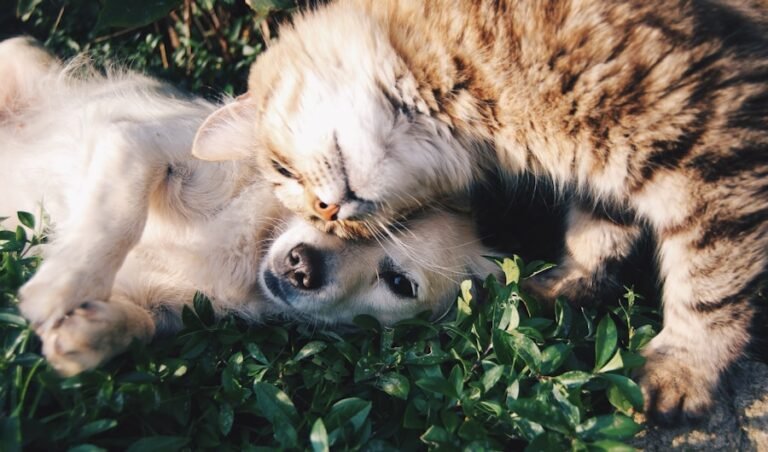The Ultimate Border Collie Diet Plan
Are you a proud owner of a Border Collie and want to make sure you’re providing the best Border Collie Diet Plan for your furry friend? Look no further! “The Ultimate Border Collie Diet Plan” is here to guide you in creating a healthy and balanced diet for your beloved pet. Whether you’re a new or experienced dog owner, this article will provide you with all the essential information you need to ensure your Border Collie is getting the nutrients they need to thrive. From recommended food types to portion sizes, we’ve got you covered. Say goodbye to confusion and hello to a happy, healthy dog with our ultimate diet plan.
Importance of Diet for Border Collies
Border Collies are highly energetic and intelligent dogs that require a well-balanced and nutrient-rich diet to support their active lifestyle and maintain optimal health. A proper diet is crucial for these dogs to meet their nutritional needs, as well as to prevent and avoid various health issues that may arise from a poor diet. By understanding the unique dietary requirements of Border Collies and consulting with a veterinarian, you can ensure that your furry friend is receiving the best possible nutrition for a long and healthy life.
Understanding Border Collie Nutritional Requirements
Border Collies have specific dietary needs that differ from other breeds. Their high activity level necessitates a diet that provides ample energy and nutrition to sustain their daily activities. Since Border Collies are prone to certain health issues, such as hip dysplasia and allergies, their diet should also support these specific needs. Factors influencing a Border Collie’s diet include their age, weight, activity level, and overall health.
Consulting a Veterinarian
When it comes to your Border Collie’s diet, it is essential to choose a veterinarian who is knowledgeable about the nutritional needs of dogs, particularly this specific breed. A reputable and experienced vet will be able to guide you in developing a diet plan that suits your dog’s individual needs. It’s important to have open and honest discussions about your dog’s diet during vet visits to address any concerns or queries you may have and ensure that your Border Collie’s nutritional requirements are being met.
Key Components of a Border Collie Diet Plan
A well-rounded Border Collie diet plan should consist of several key components. These components include quality protein sources, healthy fats, complex carbohydrates, fruits and vegetables, and essential vitamins and minerals. Let’s delve into each of these elements in detail:
Quality Protein Sources
Protein is crucial for the overall health and well-being of a Border Collie. It helps to build and repair tissues, supports the immune system, and provides energy. High-quality protein sources for Border Collies include lean meats like chicken, turkey, and fish. Additionally, incorporating eggs, dairy products, and plant-based protein sources such as lentils and chickpeas can be beneficial.
Healthy Fats
Healthy fats are an essential component of a Border Collie’s diet. They provide a concentrated source of energy and contribute to the absorption of fat-soluble vitamins. Good sources of healthy fats for Border Collies include fish oil, flaxseed oil, and olive oil. These fats also promote healthy skin and coat, reducing the risk of skin allergies or irritations.
Complex Carbohydrates
Complex carbohydrates are a valuable source of sustained energy for Border Collies. They provide crucial nutrients such as fiber, vitamins, and minerals. Incorporating whole grains, such as brown rice and quinoa, as well as legumes like black beans and lentils, can ensure that your Border Collie receives the necessary complex carbohydrates for optimal energy levels.
Fruits and Vegetables
Fruits and vegetables serve as excellent sources of essential vitamins, minerals, and antioxidants for Border Collies. These nutrients help support a strong immune system and overall health. Some dog-friendly fruits and vegetables include blueberries, apples, carrots, and spinach. However, it is essential to avoid feeding your Border Collie toxic foods like grapes, onions, or garlic.
Essential Vitamins and Minerals
Border Collies require a variety of vitamins and minerals to maintain their health and vitality. These include vitamin A, B complex vitamins, vitamin D, vitamin E, calcium, phosphorus, and magnesium. Providing a well-balanced diet that includes a variety of protein sources, fruits, and vegetables will help ensure that your Border Collie obtains these essential nutrients.
Recommended Food Portions for Border Collies
Determining the appropriate food portions for your Border Collie is crucial to prevent obesity or malnourishment. Calorie needs vary based on factors such as age, activity level, and metabolism. Consulting with your veterinarian can help you determine the optimal calorie intake for your dog. Once you have determined the proper caloric needs, you can divide them into suitable meal portions throughout the day.
Feeding Frequency
The number of meals you should feed your Border Collie will depend on their age and activity level. Puppies typically require three to four small meals a day, while adult Border Collies can be fed twice a day. Senior dogs may benefit from multiple smaller meals to aid digestion. It’s important to establish a consistent feeding routine to ensure your Border Collie’s metabolism is properly regulated.
Portion Control
Portion control is crucial to maintain a healthy weight for your Border Collie. Measuring food using a standard measuring cup or a kitchen scale can help avoid overfeeding. Keep in mind that portion sizes may need to be adjusted as your dog’s age, activity level, or health condition changes. Your veterinarian can provide guidance on portion sizes specific to your Border Collie’s needs.
Meal Timing and Scheduling
Establishing a regular feeding schedule is essential for maintaining a healthy and balanced diet for your Border Collie. Consistency in meal timing helps regulate their digestive system and prevent stomach upsets. Ideally, you should feed your dog at the same times each day, ensuring a gap of a few hours between meals and exercise.
Regular Feeding Schedule
Creating a consistent feeding schedule helps to regulate your Border Collie’s hunger and prevents them from overeating. In addition to regular feeding times, it is also important to establish consistent times for walks and playtime to maintain a routine for your dog’s daily activities.
Meal Timing Around Exercise
It is best to schedule meals before or after exercise to avoid digestive issues. Feeding your Border Collie a small meal or snack about 1-2 hours before exercise ensures they have enough energy for physical activity. After exercise, wait for a brief period before feeding to allow your dog to cool down and prevent gastrointestinal upset.
Common Diet Mistakes to Avoid
To provide the best nutrition for your Border Collie, it’s important to avoid common diet mistakes that could negatively impact their health. Be mindful of the following:
Overfeeding
Overfeeding can lead to obesity, which puts a strain on your Border Collie’s joints and can lead to other health issues. Follow portion control guidelines recommended by your veterinarian to prevent overfeeding and maintain a healthy weight for your dog.
Feeding Table Scraps
While it can be tempting to share your food with your furry friend, feeding table scraps can be detrimental to their health. Human food is often high in fats, salt, and other ingredients that can cause digestive upset or even toxicity in dogs. Stick to a balanced and nutritious diet specifically formulated for a dog’s needs.
Inadequate Hydration
Proper hydration is essential for a Border Collie’s overall health and well-being. Always ensure fresh, clean water is available for your dog at all times. Dehydration can lead to serious health problems, so monitor their water intake, especially during hot weather or after exercise.
Lack of Variety
Providing your Border Collie with a variety of foods helps ensure they receive a wide range of nutrients. A monotonous diet may lead to nutrient deficiencies or food intolerances. Rotate protein sources, incorporate different fruits and vegetables, and consider introducing occasional treats or chews to keep mealtimes exciting for your dog.
Homemade vs. Commercial Dog Food
When deciding between homemade and commercial dog food for your Border Collie, it’s important to consider the pros and cons of each option.
Pros and Cons of Homemade Food
Homemade dog food allows for complete control over the ingredients and gives the flexibility to cater to your dog’s specific dietary needs. However, formulating a nutritionally balanced homemade diet can be challenging, as it requires careful consideration of essential nutrients and appropriate ratios. Consulting with a veterinary nutritionist is recommended if opting for a homemade diet.
Pros and Cons of Commercial Food
Commercial dog food is formulated to meet the nutritional needs of dogs, including Border Collies. It is convenient and widely available in various formulations, including breed-specific options. However, not all commercial dog foods are created equal, and it’s important to choose a high-quality brand that uses premium ingredients and avoids fillers or artificial additives. Reading labels and choosing reputable brands can help ensure your Border Collie receives a nutritionally balanced diet.
Supplements for a Border Collie Diet
Supplements may be beneficial to enhance your Border Collie’s overall health and address specific nutritional needs. It is important to consult with your veterinarian before adding any supplements to your dog’s diet to ensure they are appropriate and necessary.
Understanding Necessary Supplements
Common supplements for Border Collies may include omega-3 fatty acids, glucosamine and chondroitin for joint health, or probiotics for gut health. Your veterinarian can guide you in selecting the right supplements based on your dog’s specific needs and health requirements.
Consulting Vet for Supplement Recommendations
Your veterinarian is the best resource for recommending appropriate supplements for your Border Collie. They can assess your dog’s health, consider any pre-existing conditions, and suggest suitable supplements to optimize your dog’s well-being.
Special Considerations for Border Collies
Certain factors may require additional adjustments to a Border Collie’s diet to address specific needs.
Calorie Adjustments for Working Dogs
Working Border Collies, engaged in activities such as herding or sports, generally have higher energy requirements and may need additional calories in their diet. Adjusting calorie intake based on their activity level ensures they have enough energy to perform their tasks.
Dietary Modifications for Health Conditions
Border Collies may be prone to certain health conditions, including hip dysplasia, allergies, or gastrointestinal issues. It may be necessary to make dietary modifications to address these conditions, such as selecting appropriate protein sources or avoiding common allergens.
In conclusion, maintaining a balanced and nutritious diet is crucial for ensuring the health and well-being of your Border Collie. By understanding their unique dietary requirements, consulting with a veterinarian, and providing the necessary components in their meal plan, you can provide your dog with the nutrition they need for a long and happy life. Remember to establish a regular feeding schedule, avoid common diet mistakes, and consider any special considerations or modifications based on your Border Collie’s individual needs. With proper diet and care, your Border Collie will thrive and be by your side for many years to come.












